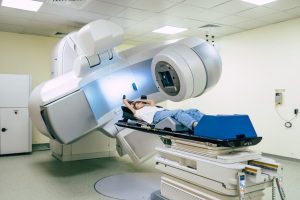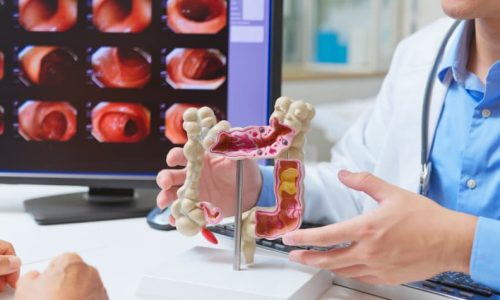
External vs. Internal Radiation for Breast Cancer
If you’ve been diagnosed with breast cancer, you may have heard radiation therapy discussed as part of your treatment plan. This approach is commonly used
HIPAA Alert: Potential Data Breach Learn More
Questions on Oncology, Hematology and/or Infusion Clinical Services due to COVID-19 Crisis – CALL 833-698-1623
Important Information for Our Patients Regarding the Coronavirus.
RCCA Providing Area Cancer Patients with Access to Care During Coronavirus Outbreak
RCCA Offering Patients Virtual Visits During Coronavirus Pandemic
A colon biopsy, an important diagnostic step for colon cancer and other conditions, may sound unsettling at first, especially if you’ve never had one before. However, biopsies aren’t so scary. Knowing what to expect can help you approach medical testing with confidence.
Many individuals diagnosed with colon cancer turn to Regional Cancer Care Associates (RCCA) for treatment. RCCA is a group of more than 100 medical oncologists and hematologists who treat patients who have solid tumors, blood-based cancers and benign blood disorders at more than 20 locations throughout New Jersey, Connecticut, Massachusetts, and the Washington, D.C., area. They strive to educate patients while providing innovative care.
Following, we discuss what a colon biopsy is, why it is used, and how it is performed, to help you prepare for your procedure.

A colon biopsy is the final step in the colon cancer diagnosis process. It involves removing a small amount of tissue, called a sample, from the colon. The sample is examined at a microscopic level to determine whether any of its cells are cancerous or precancerous. If cancer is present, a biopsy may also be used to look for certain proteins or mutation types. These tell oncologists whether certain treatments, including targeted therapies, are likely to work.
Being sent for a colon biopsy does not always mean an individual has cancer. It simply means that the doctor thinks an additional test is warranted. This may be for several reasons, including:
One reason for a colon biopsy is to find out the cause of new symptoms. As colon cancer progresses, it causes several signs and symptoms, including:
While the above symptoms are associated with colon cancer, they are more commonly caused by other conditions such as inflammatory bowel disease (IBS). Nonetheless, it is important to consult a physician about these symptoms, particularly if they are pronounced, arose suddenly, or have persisted for an extended period. Results from a biopsy will rule out possibilities to confirm the correct diagnosis. Once the physician is sure of the cause, treatment can begin.
Though understanding the warning signs is important, it is not always a reliable way to detect cancer. Early stages of colon cancer often do not cause symptoms at all. For this reason, oncologists recommend routine colon cancer screenings. These tests, which are repeated every few years, can detect cancerous abnormalities long before symptoms appear. Patients get a head start on their treatment.
If a screening test, such as a colonoscopy or CT colonography, detects something abnormal, such as a tissue mass or tumor, then a colon biopsy will be ordered. The biopsy is an opportunity for oncologists to evaluate the abnormality and find out whether it is cancer.
In addition to tumors, colon cancer screenings can also detect polyps. These are tissue growths found in the colon. While polyps are benign, some types have a high likelihood of becoming cancerous. These are called adenomas. Other types, including hyperplastic polyps and inflammatory polyps, are unlikely to become cancerous. During a colonoscopy, however, all three look alike.
If a screening test detects polyps, then a biopsy will be ordered to remove them. Removing polyps lets physicians stop cancer before it develops. It is also a chance to test the polyps and determine whether they are precancerous. If adenomas are found, close monitoring is essential to watch for cancer.
Before a colon biopsy, you will need to clean out your bowels. Your physician will provide instructions on how to do so. Usually, it involves avoiding fiber-rich foods for several days before the procedure. On the day before the procedure, you must transition to a clear-liquid diet. Clear liquids refer to liquid foods and beverages without pulp, cream, or other solids. Reliable choices include:
While on the clear-liquid diet, you will also be prescribed a strong laxative. An enema may also be provided. Bowel prep will cause diarrhea, so it is recommended that you stay close to a bathroom to avoid unpleasant situations. Many people find this the most uncomfortable part of the procedure.
On the day of your colon biopsy, make sure you are prepared for recovery. Be sure to take the day off work so you can rest at home. You should also make plans for a ride home, as you will not be able to drive safely until the anesthesia or sedative wears off.
When you arrive at the hospital, you will be given a hospital gown to wear. You will then be asked to lie down on a table. An intravenous (IV) needle will be used to administer sedatives or anesthesia. This will prevent pain or keep you asleep during the procedure, which is performed similarly to a colonoscopy:
In total, the procedure takes about one hour to complete. Afterward, you will be taken to a recovery area to wake up from anesthesia. You will be cleared to return home as soon as you are awake. Most people wish to sleep for a few hours before returning to normal activities.
Having a piece of your colon removed may sound unsettling. Most people, however, feel no discomfort. Biopsy samples are taken from the colon’s innermost lining, which has very low pain sensitivity. The worst thing you are likely to experience is some gas or mild cramping. Very rarely, a colon biopsy may lead to infection. Contact your physician if you experience the following symptoms:
Your biopsy sample will be sent to a medical laboratory for testing. Results take a few days to a week to arrive. Once they do, your physician will schedule a follow-up to discuss your next steps. Depending on your results, these may include:
A colon biopsy is easier than you might think, and it’s an invaluable tool for diagnosing colon cancer early and planning an effective treatment. Regional Cancer Care Associates educates patients to help them avoid life-threatening cancer. RCCA specialists provide care to more than 30,000 new patients and 265,000 established patients each year. RCCA physicians offer patients innovative therapies, including immunotherapies and targeted therapy, cutting-edge diagnostics as well as access to approximately 300 clinical trials in community-based centers close to home.
What is a colon biopsy procedure?
A colon biopsy is a procedure in which a small piece of colon tissue is removed from the colon (large intestine) so it can be examined under a microscope to check for disease.
Why is a colon biopsy done?
It helps diagnose conditions such as colon cancer, polyps, inflammatory bowel disease (Crohn’s disease, ulcerative colitis), or unexplained bleeding.
How is a colon biopsy done?
A colon biopsy usually is performed during a colonoscopy. A thin, flexible tube with a camera is inserted into the colon, and special tools are used to take tissue samples.
Does a colon biopsy hurt?
No. individuals are typically sedated during a colonoscopy, so they don’t feel the biopsy itself. Some mild bloating or cramping may occur afterward.
Are there risks from a colon biopsy?
Risks are rare but can include bleeding at the biopsy site, infection, or (very rarely) a perforation in the colon wall.
How long do results take?
Biopsy results usually take a few days to a week, depending on the lab and the type of testing needed.
For more information or to schedule an appointment,
call 844-346-7222. You can also schedule an appointment by calling the RCCA location nearest you.

If you’ve been diagnosed with breast cancer, you may have heard radiation therapy discussed as part of your treatment plan. This approach is commonly used

Cancer and its treatment often impact a person’s quality of life. In the case of prostate cancer, a man’s sex life may be affected. Sexual

Lung cancer is commonly considered a smoker’s disease, as cigarette smoking is the most significant risk factor for its development. However, not all cases are

Regional Cancer Care Associates is one of fewer than 200 medical practices in the country selected to participate in the Oncology Care Model (OCM); a recent Medicare initiative aimed at improving care coordination and access to and quality of care for Medicare beneficiaries undergoing chemotherapy treatment.